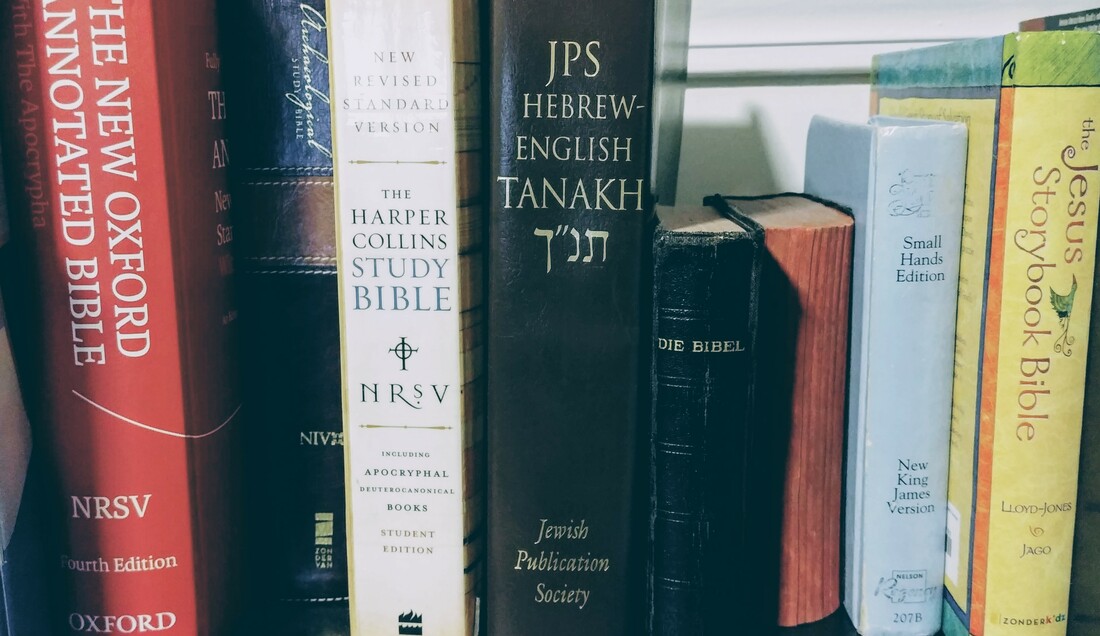|
-Rev Melissa Fain- This series is best experienced in order. If you are jumping in at this point, here are all the previous meditations. Please check them out: Bible 101: An Introduction Bible 101: Finding God Bible 101: The Three Hebrew Bibles Bible 101: Language Changes Bible 101: Take a Breath Bible 101: Voice Bible 101: Jumbled Voices No, Q is not a Star Trek reference, but imagining the futuristic trickster has taken over the website to write this specific meditation helps, pretend away.
Today is all about the Gospels, specifically Matthew Mark Luke and, yes, even John. Nothing outside Canon. Also, no Paul today. Whether we want to admit it or not, the written story is at least version 3.0. Version 1.0 was the literal event. We will never be able to capture that level of accuracy. The taste of the dust being kicked up. The faces of those reacting to the action. The tone of those speaking. All lost. Version 2.0 was the recollections of the event. Maybe that takes the form of quiet consideration. Maybe it's sharing with a friend or neighbor. The story behind the event holds a sort of power. There's the fear or excitement of sharing. Is sharing dangerous, or daring? The hushed whispers, or joyous shouting of the recollections are now forever lost. That's why by the time we get to a written account pieces have been forever lost, and there is not a single person who could convince me otherwise. The Ancient Near East writers were not concerned with the things we concern ourselves with today. We care in what way and how something is said. Ancient Near-East writers did not. We care how someone stands in the presence of others, because it shows power, respect, and a number of other things. Words like "cower" or "look-down" speak to how a group or a person would react to words. Instead we are often just left with the words, needing to pull from other places in the Bible to understand what happened. If we follow a three version theory (event, considering the event, and the writing of the event) we have a potential mess. Most of the Disciples were fishermen, which almost assuredly means they didn't know to write. The literacy of the people during Jesus' time is one of the big reasons many scholars don't believe Matthew and Mark the Apostles wrote the Gospels Matthew and Mark. The Gospel of Luke/Acts flat out tells the receiver of the text he is a collector, not someone who experienced the event. John is another story for another day. We also have to believe that multiple Disciples chose or were chosen to be scribes when only one was necessary, if any at all. There is an extremely popular theory I subscribe to: The two-source hypothesis. Matthew Mark and Luke are something we call, "synoptic." In this case the word means "taking the same point of view." There are pieces of these three Gospels that are so closely worded, it's believed they share original sources. The Gospel of Mark, in and of itself, is considered one of those sources. It is also considered the oldest of the four Gospels. It is believed Luke and Matthew pulled from Mark and a second text, one we call Q. Q is talking about text we've never seen, never been explicitly mentioned in the Bible, but still many Biblical scholars believe exist. We can look at Matthew and Luke and see pieces that appear to be pulled from Mark. Then there's this Q. The term for this mysterious text comes from the German word for source, "Quelle." It's thought there was a collection of sayings from Jesus. Apparently both Matthew and Luke pull from these sayings, while Mark does not. Because it appears Matthew was pulling from sources to craft the Gospel, it is another reason why it was more than likely not written by the Apostle Matthew. Yes, I know this is where we need to take another breath. I get it. I was there too. I wanted to believe everything happened, then Matthew, Mark, Luke, John, and Peter sat in front of a worn desk with ink and pinned the events. Truth is never that simple. There wasn't a point where "everything happened" for these Apostles. From the moment Jesus called them, to the moment of their death it was action. Either they were learning what Jesus wanted them to learn, or they were in hiding from a brutal government. Mark stands as a testament that was probably once removed. As in, a Disciple of an Apostle (possibly Mark, but maybe not) wrote the events down, and it was shared as a reliable source. Q, as well, seems like something that came from someone close to the event, directly or once removed. It is tradition that gives us the names of the Gospels. It also isn't false if the collectors of information were people by the name of Luke and Matthew. I often say the answers are found in the "why?" We need to constantly ask what is the method behind the action. The action itself is a reaction to something. That something, whatever it was can answers so many questions. When it comes to the Bible, I want us to also ask "how." There was a God moment, and it was so spectacular it was written down like shock waves. Not just once. Not just four times, but more than that. Then those events were collected and shared. Do not get caught up in the words. Be amazed at how spectacular the event was to have so many cataloging its existence. Next week we are going to talk about that word Canon I keep using, and early church communities. |
Categories
All
Archives
October 2023
|




 RSS Feed
RSS Feed